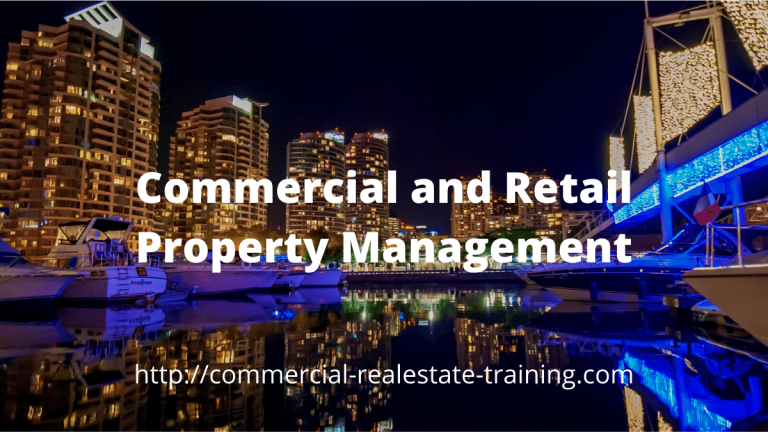Commercial Property Management – How to Address Tenant Property Damage or Default
In commercial real estate there are good tenants and there are some not so good tenants. It’s the ones that break the rules that create a lot of headache for landlords and property managers. You need a plan of approach to keep these tenants and the problems that they create under control.
In commercial real estate, the tenants that create problems are usually those that evolve from a combination of events or facts such as:
- Poor business performance and or management
- Low cash flow and or sales
- Unsuccessful business venture
- Split of business partnership
- Tenant mix volatility
- Change in the local or regional economy
Generally you can see these difficult things happening and growing over time if you watch the tenant and their business activities closely. Make it a regular process to visit the property and meet with the tenants. Observe, converse, record, and explore the tenant and property issues as you walk around the property. Look for signs of difficulty. Ask direct questions.
Keep the communication tenant flowing, call around to the property frequently, and look at the physical aspects of the tenant’s business layout, presentation, and staffing numbers. A poorly performing business and or tenant will have indicators to observe and note.
What’s the impact?
A tenant performance problem has to be kept in check as it will have an impact on the overall performance of the property and the income. That can then flow through to higher vacancy factors, and impact the other occupants and users of the property. If you are managing or leasing a major property with a large number of tenants, then the monitoring process is complex and the impact of a defaulting tenant across the tenant mix can be a real concern.
Set your Rules for Tenant Control
So let’s set some rules to control this property problem or challenge. Here are some of the big ones to help you get started:
- Local property laws – There will be rules, laws, and regulations in your town, state, or country that apply to commercial tenant and rental default. In the first instance you will need to know those factors and adhere to them in any involvement and negotiation with the defaulting tenant(s). The local property legislation has to be understood and actioned given the property and tenant circumstances. If you don’t act within the property laws of your location, the actions that you take are likely to be ineffective or even costly to you when you seek to deal with the defaulting tenant. Remember that the tenant can sometimes mount a legal case against you if you do the wrong thing.
- Understand the lease document – The lease for the occupancy situation will usually spell out the responses where the tenant does something wrong or defaults. Read the lease before you do anything with the tenant.
- Seek local legal advice – A property lawyer will know what to do in most circumstances of tenant disruption and or default. Seek that legal advice if any questions or concerns exist on the actions to be taken.
- Get evidence – You will need plenty of notes and photographs that support your concerns and case against the tenant. If the matter is escalated to the court or judicial system, then your evidence has to be rock solid.
- Conversations and facts – All of the conversations that you have with the tenant and or any person associated with the tenant should be recorded in note form for later reference.
- Inspect the property with another person – If you know that you have a tenant and or premises problem, have another person attend the property with you as a witness to the situation.
- Take meeting notes – When you meet with the tenant keep notes of the discussions and agreements made; document those agreements back to the tenant. Have another person attend the meeting with you to provide proof of what was said. Understand the requirement of evidence and the value of note-taking in handling the tenant problem and or communication.
- Negligence – Failing to do something or not knowing what to do can be seen by others as a case for professional negligence. If you do not know what to do with a tenant or lease situation, it is your job as the agent or broker to find out. A lack of knowledge is not an excuse for a personal lack of action.
Through all of these issues you have your relationship to your client (the landlord). They will have instructions for you to follow, but those instructions must be legal for the location, the property, and the situation.
When you do not know what to do with a tenant situation, seek help or information before you act. A small act, error, or omission in handling a tenant lease or default matter can have major consequences for all concerned.
You can get plenty of tenant management tips in our eCourse ‘Snapshot’ right here.







